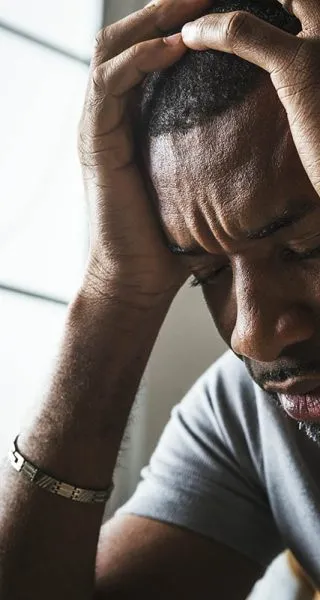Recognizing the signs of depression in yourself or a loved one isn’t as easy as you might think. It helps to become more familiar with the signals to watch for in yourself and others. We often have the biggest blind spots when it comes to ourselves and the people we care about. You put yourself in a stronger position to help yourself or someone your care about when you learn more about the different ways that depression might manifest.
What Is Depression Disorder?
Depression disorder causes people to have constant feelings of sadness and hopelessness. The condition is also referred to as “clinical depression” or “major depressive disorder.” While people can experience bouts of depression in reaction to life events, depression disorder doesn’t clear up after a few days or even a few weeks. It can get to a point where you require more in-depth treatment at a place capable of treating depression disorder.
There are a variety of factors that can increase a person’s chances of developing depression disorder, including:
- The chemical makeup of the brain
- Having a family history of depression or other mood disorders
- Environmental factors like growing up in a home where there was abuse or neglect
Whatever the cause, it is essential to understand that depression disorder is treatable.
Signs You May Have Depression Disorder
Symptoms of depression disorder can manifest at any stage of development. Below you will find some signs of depression to watch for in yourself or loved ones. Early intervention can make a big difference in your chances of recovery.
1. Constant Feelings of Fatigue
People with depression disorder often find themselves feeling tired or overwhelmed. You may write off those feelings as merely the fallout from dealing with stress. However, the fatigue may progress to the point where you never seem to have the energy to enjoy your favorite activities. Spending time with family or even going to the grocery store can seem draining.
2. Self-Medication Through Substance Abuse
Another common sign of depression disorder is a growing reliance on substances like drugs and alcohol. People often turn to substance abuse to self-medicate the symptoms of depression disorder, especially if they haven’t received a formal diagnosis. Abusing drugs and alcohol can cause you to end up with a substance abuse problem, leaving you struggling with two different disorders.
3. Difficulty Focusing
Another way that depression disorder may show up in your life is through an inability to concentrate on important tasks. It may start as something minor, like being late on a work assignment. However, it can get to the point where your inability to focus severely impacts your performance at school or work.
4. Constant Mood Swings
You may find yourself turning what should be minor disagreements into major blowups due to an inability to control your emotions. It can seem that everyone and everything is working against you. Friends and family may tread carefully around you because they don’t know which side of your personality they will encounter at any given moment. It can get to a point where you’re taking your frustrations out physically on yourself or others.
5. Sleep Issues
People with depression disorder often have trouble sleeping (insomnia) or might sleep too much (hypersomnia). Sleep disorders are often one of the first signs of depression disorder.
Get Help for Depression Disorder at GIA Miami
GIA Miami provides an inviting, luxurious atmosphere for those seeking depression treatment. We do what we can to make your environment as home-like as possible. The team of mental health specialists at GIA Miami understands that clients may be at their lowest point when they come to us for help. Our goal is to make sure they have everything they need to achieve recovery. Among the many programs and approaches we utilize at GIA Miami are:
- Addiction treatment
- Mental wellness treatment
- Transcranial magnetic stimulation therapy
- Stress management
- Sexual addiction
- Cutting-edge therapeutics
Learn more about GIA Miami by contacting us online.







